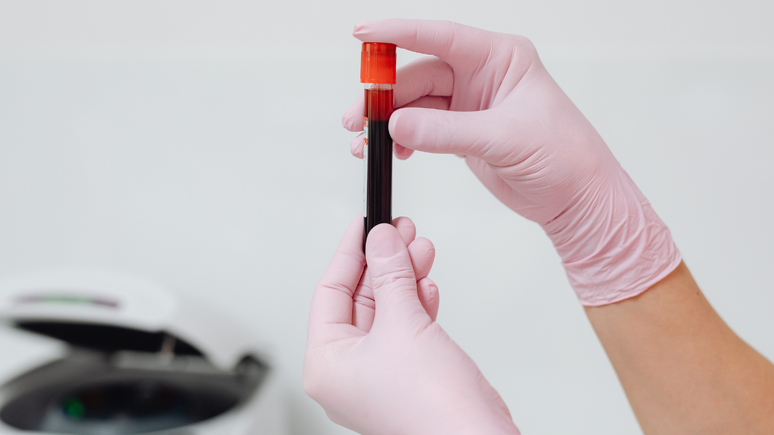The technique, tested by Brazilian researchers, allows the neurological condition to be identified early, which helps prevent its progression
Brazilian researchers from Federal University of Rio Grande do Sul (UFRGS) found that a blood test can diagnose Alzheimer’s early, with an accuracy of over 90%. According to experts, the technique can ensure a more effective treatment, which will prevent the progression of the disease.
New test Alzheimer’s
To find a way to detect the disease, researchers analyzed samples of blood and cerebrospinal fluid, a body fluid currently used for diagnosis, from 59 patients. Additionally, these participants underwent a cognitive assessment and an MRI. Thus it was possible to discover the presence of a biomarker, the p-tau217 protein, in the red blood cells of participants suffering from Alzheimer’s.
“We still don’t fully understand the origin of this substance in the brain, but we know that it increases in cases of patients who have an abnormal accumulation of amyloid plaques and phosphorylated tau protein in the brain, characteristic of the disease,” said one of the study’s lead researchers, Willyans Borelliin an interview with “CNN”.
And in addition to the Brazilian study, published in the journal Molecular Psychiatry, an international review, which included a sample of 30 thousand people, also indicated proteins as an indicator of the disease. According to Borelli, the test proves to be more effective than traditional options because its results rarely vary, ensuring an early and accurate diagnosis.
Waiting for access via the SUS
Therefore, as the researcher points out, the discovery also helps the success of treatments. “We know that the earlier we identify the protein in those with forgetfulness, the greater our ‘therapeutic window’ will be to prevent progression and advance the discovery of treatments. This happens because the neuron, unlike other cells, when it dies, is not recoverable. So we try to do everything to avoid neuronal death”, complete.
Currently the exam is already available on the private network. The values, however, are high, reaching R$3,600. But, according to scholars, access occurs through Basic Health System (SUS) it is vital. This is because, although it is more expensive than alternatives, such as a complete blood count, the price difference can balance out depending on use.
Source: Terra
Ben Stock is a lifestyle journalist and author at Gossipify. He writes about topics such as health, wellness, travel, food and home decor. He provides practical advice and inspiration to improve well-being, keeps readers up to date with latest lifestyle news and trends, known for his engaging writing style, in-depth analysis and unique perspectives.








